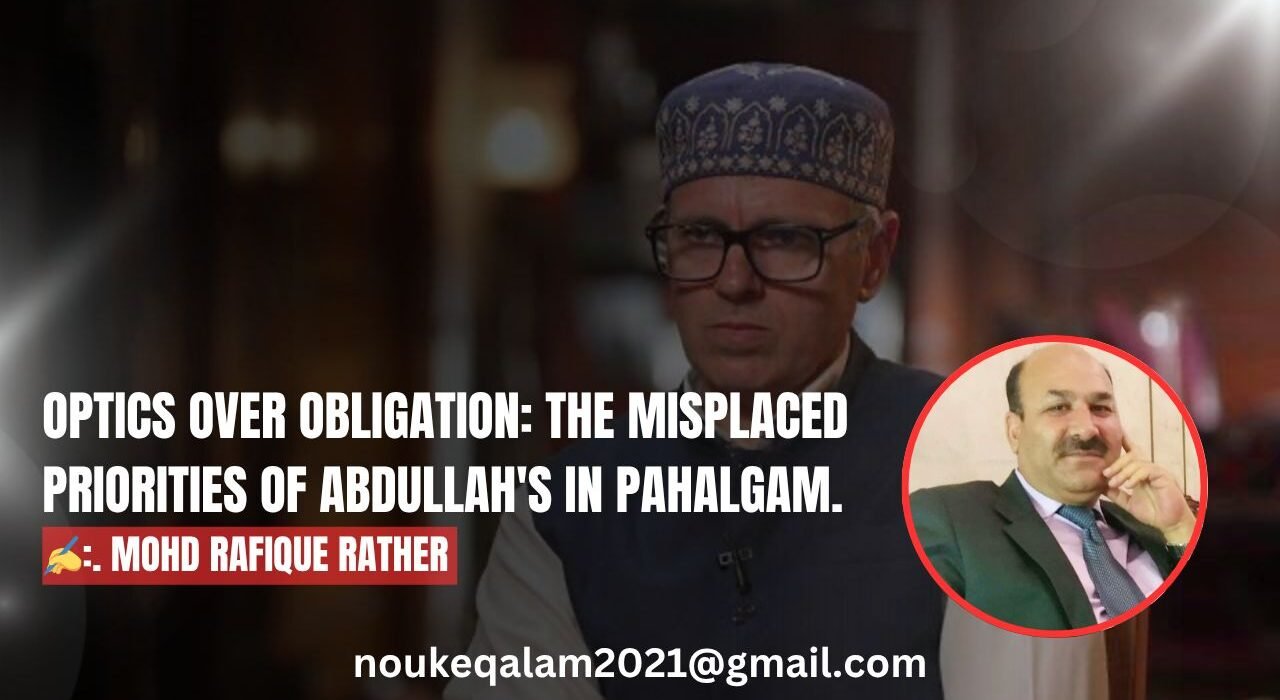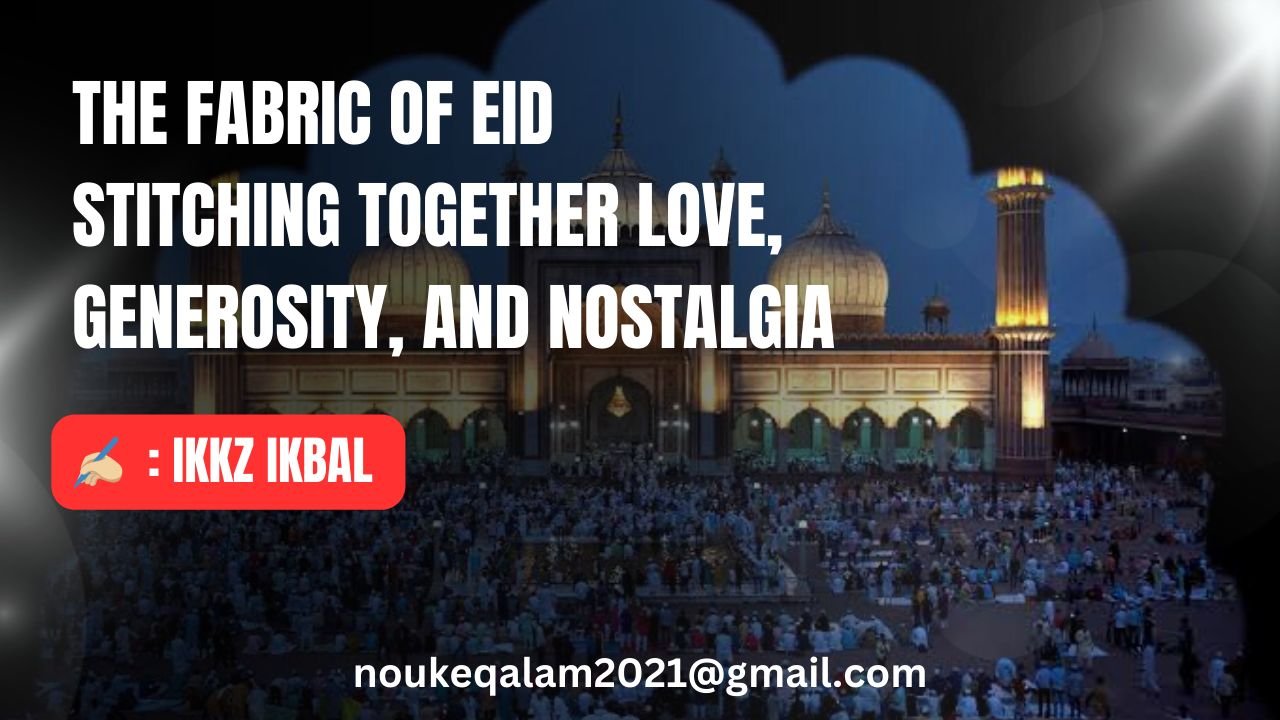In a recent political spectacle that has drawn criticism and raised eyebrows across Jammu and Kashmir, Chief Minister Omar Abdullah convened a Cabinet meeting in the picturesque tourist town of Pahalgam. What followed was not just a formal engagement but a carefully choreographed cycle ride meant to project normalcy and perhaps rejuvenate the image of Kashmir as a secure and inviting destination for tourists.
Joining the parade of optics was National Conference patron and former Chief Minister Dr. Farooq Abdullah, who was seen playing Golf at the posh Pahalgam Golf Course, a scene widely circulated across media platforms. While tourism and recreation are vital sectors in the Valley’s economy, the timing and messaging behind these publicized events raise serious concerns about misplaced priorities and political tone-deafness.
To make matters worse, Omar Abdullah’s two sons—who are neither elected MLAs nor active political figures—were also seen participating in the so-called Cabinet proceedings. Their presence alongside their father and grandfather, Dr. Farooq Abdullah, symbolized not governance, but dynastic display. Three generations of the Abdullah family appeared to be enjoying a family retreat under the pretext of official duty, turning what should have been a serious administrative exercise into a theatrical indulgence
On the surface, these events seem harmless—perhaps even well-intentioned. The administration might argue that high-profile appearances in tourist hubs promote confidence, both domestically and internationally, in Kashmir’s stability and hospitality. However, the overwhelming presence of security personnel, tight protocols, and sanitized public appearances only served to reinforce how far we remain from the claimed “normalcy.” When a simple cycle ride requires a blanket of armed security, it inadvertently paints a picture far removed from peace and openness.
At a time when the people of Jammu and Kashmir are grappling with deep-rooted issues — from crumbling infrastructure and water shortages to erratic electricity supply and unemployment — these public displays of leisure and luxury come off as glaringly disconnected from ground realities. The citizens, especially in rural and underserved areas, face daily hardships that require urgent, sustained attention from the highest levels of government. In such a context, Cabinet meetings held in scenic tourist destinations appear less like administrative necessity and more like political excursions under the guise of governance.
Moreover, these events excluded local stakeholders, community voices, and tourism workers—the very people who stand to gain or lose the most from Kashmir’s tourism narrative. A people-centric approach would have involved collaborative initiatives, interactive sessions with local business owners, and plans to enhance grassroots tourism infrastructure. Instead, the focus remained on curated visuals designed to appeal more to headlines than to hearts.
It is not tourism itself that is problematic—it is the way it is being portrayed and politicized. Tourism should be fostered through policy reforms, improved connectivity, infrastructure development, and sustainable investment in local economies, not through one-day photo-ops that mask the real issues under a veneer of calm.
Farooq Abdullah’s leisurely game of golf and Omar Abdullah’s cycle parade risk being seen not as leadership but as a retreat into elitism. They evoke the image of a ruling class removed from the people’s pain, projecting symbolism at the cost of substance.
True leadership demands empathy, accountability, and a ground-up understanding of public sentiment. In a region with a turbulent past and an uncertain future, the people of Kashmir deserve more than staged performances. They deserve leadership that listens before it leads, acts before it advertises, and heals before it hosts.
Kashmir’s path to genuine peace and prosperity will not be paved by optics. It will be built through trust, transparency, and tireless dedication to the everyday needs of its people.
The author is a trade union leader turned politician and has worked at Spokesperson JKPDP.
Can be reached at
mrafiqr65@gmail.com






